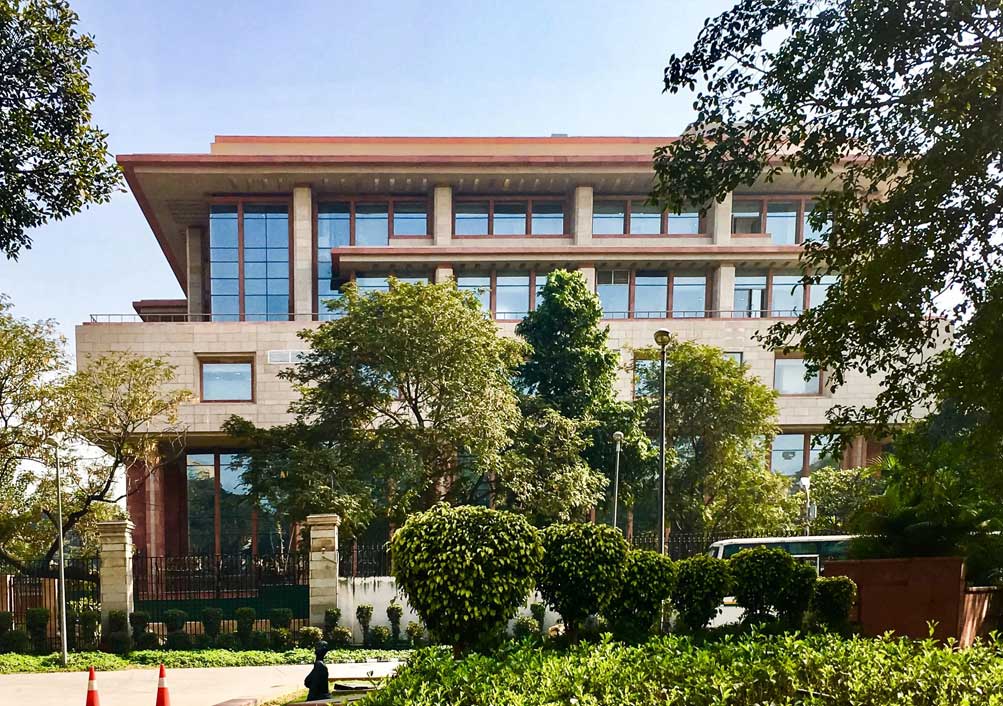In W.P. (C) 8600/2022 -DEL HC- Delhi High Court rules Ernst and Young not an ‘Intermediary’, allows refund of Input Tax Credit
Justice VibhuBakhru& Justice Amit Mahajan [23-03-2023]

Read Order: M/s Ernst and Young Limited V. Additional Commissioner, CGST Appeals -II, Delhi and Anr
Chahat Varma
New Delhi, July 6, 2023: The Delhi High Court has ruled in favour of M/s Ernst and Young Limited (petitioner) by determining that the petitioner was not an intermediary. As the recipient of the services provided by the petitioner, i.e., EY Entities, were located outside India, the court concluded that the services fell within the definition of export of service under Section 2(6) of the Integrated Goods and Services tax Act (IGST Act). Consequently, the court directed the Adjudicating Authority to process the petitioner's refund application for input tax credit as expeditiously as possible.
Factual background of the case was that the petitioner was an Indian Branch Office of M/s Ernst & Young Limited, a company incorporated under the laws of United Kingdom (E&Y Limited). E&Y Limited entered into service agreements for providing professional consultancy service to various entities of Ernst & Young group (EY Entities). In terms of the aforementioned service agreements, the overseas entities had retained E&Y Limited, acting through its Indian Branch (the petitioner herein) to provide certain professional services. The petitioner had provided various professional services to overseas EY Entities in terms of the agreements entered into between E&Y Limited and the respective overseas EY Entities. The petitioner applied for refund of the ITC availed for providing its professional services for the periods December 2017 to March 2020.
The Adjudicating Authority rejected the petitioner's applications for refund of ITC by considering the petitioner as an intermediary and concluding that the place of services was located in India, where the petitioner's place of business was situated, rather than where the recipient of services was located. The Appellate Authority upheld this decision.
The division bench of Justice VibhuBakhru and Justice Amit Mahajan observed that the definition of ‘intermediary’ under Section 2(13) of the IGST Act clearly indicated that an intermediary's role was to arrange or facilitate the supply of goods or services between two or more persons. In the present case, it was undisputed that the petitioner did not arrange or facilitate services from third parties to EY entities; instead, it directly provided services to them. The bench opined that the Adjudicating Authority had misunderstood the meaning of ‘intermediary’, and clarified that a person who provides services, rather than arranging or facilitating goods from another supplier, cannot be considered an intermediary.
The bench further observed that according to Clause (b) of Sub-section (8) of Section 13 of the IGST Act, the place of supply of intermediary services was determined based on the location of the supplier of services. However, since the petitioner's services were not intermediary services, the place of supply of their services to overseas entities should be determined based on the location of the recipient of the services. As the recipients (EY Entities) were located outside India, the professional services rendered by the petitioner would qualify as export of services under Section 2(6) of the IGST Act.
“The petition is, accordingly, allowed. The impugned order as well as the impugned orders-in-original are set aside,” held the division bench.
Sign up for our weekly newsletter to stay up to date on our product, events featured blog, special offer and all of the exciting things that take place here at Legitquest.




Add a Comment